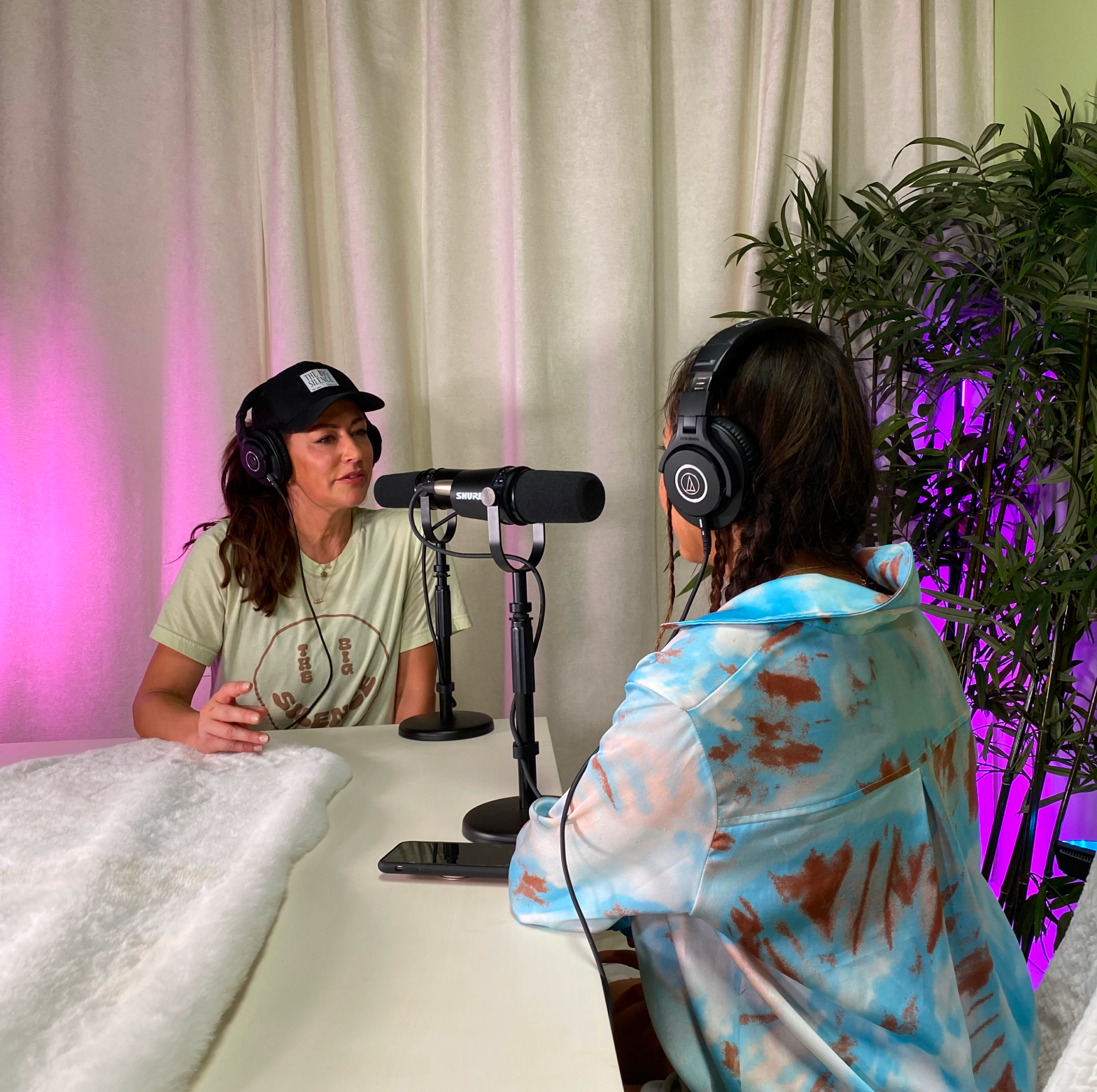
Finding Support Groups for Mental Health and Mental Illness: Tips from Karena and James
Are you looking for a supportive community to help you navigate mental health or mental illness? In this Big Feels edition, Karena and James share their personal experiences with support groups and offer valuable tips on finding the right one for you. They discuss the benefits of support groups, including education, validation, and connection with others who understand what you're going through. They also provide resources for finding support groups, both online and in person, including NAMI (National Alliance on Mental Illness) and Reddit.
You've got a friend. Join support groups or online communities for people with similar experiences.
Key Takeaways:
- Support groups can provide education, validation, and a sense of community for people with mental health conditions and their loved ones.
- There are many different types of support groups available, both online and in person.
- It's important to find a support group that is a good fit for your individual needs and preferences.
- NAMI and Reddit are two great resources for finding support groups.
- The Big Silence resources guide offers information for a variety of support groups
Who This Video Is Made For:
- People with mental health conditions or mental illness
- Loved ones of people with mental health conditions or mental illness
- Mental health professionals
- Anyone looking for information about support groups for mental health and mental illness
Finding and Joining a Support Group: Etiquette and Tips for Success
In times of personal challenge, support groups can be a valuable resource for connection, understanding, and healing. Whether you're dealing with a health condition, loss, addiction, or any other life struggle, finding the right support group can make a significant difference. However, joining a new group can be intimidating. We have some tips to help you navigate the process and feel more comfortable.
Finding the Right Support Group
Identify Your Needs
The first step is to get clear on your needs. Reflect on what you’re looking for in a support group. Are you seeking emotional support, practical advice, or a mix of both? Knowing your goals will help you find a group that aligns with your needs. Try writing out exactly what you are hoping to find, or specific questions you have about the issue that will help you find the support you are looking for.
Research Options
You could go to NAMI.org, Reddit.com, The Big Silence resource guide to find support groups and communities that deal with the specific issues that you are looking for support with.
Besides online resources, you could find information in your local area at community centers, churches, universities, hospitals, and other local organizations that cater to specific groups.
Websites like Meetup, Psychology Today, and local community boards can help you discover options, too.
Consider the Format
There’s a variety of different ways to meet these days, and that goes for support groups, too. Meetings could be in-person or online, structured or informal. Online groups may offer flexibility for a busy schedule, or when dealing with transportation issues. But, some people might feel that they are better suited to finding a stronger sense of connection through in-person meetings.
In the video, Karena shares that she and her husband Bobby found the most support by meeting weekly with their in-person NAMI Family to Family support group.
James also mentions the online forum Reddit, which would be an asynchronous support group where users share their text and comments whenever they are thinking about it or have a moment. Many of these online forums will have rules and guidelines in place to help create a supportive and safe posting environment, and they may even have a guide or table of contents to help you to navigate the posts. For an example, see the r/schizophrenia support group.
Decide which format suits you best and explore a couple of different options if you aren’t sure.
Support Group Etiquette
Knowing what to expect, or how to prepare in advance can help to ease anxiety or stress about attending a new group.
- Respect Confidentiality: What is shared in the group should stay in the group. Respecting confidentiality is crucial for creating a safe and trusting environment.
- Listen Actively: Give your full attention when someone else is speaking. Avoid interrupting and try to understand their perspective without judgment.
- No Judgement: Judgement will interfere with the benefits you could gain from attending the group.
- Be Open and Honest: Share your experiences honestly, but only to the extent that you feel comfortable. Authenticity fosters trust and deeper connections within the group.
- Be Supportive: Offer empathy and encouragement to others. Avoid giving unsolicited advice unless it’s requested, as everyone’s journey is unique.
- Respect Time: Be mindful of the time you take to share, allowing others the opportunity to speak as well. Arrive on time and stay for the entire meeting if possible.
Tips for Overcoming Nervousness
- Start with Observation: If you’re nervous about speaking, start by attending a few meetings just to listen. This can help you get a feel for the group dynamic and build confidence over time.
- Prepare Mentally: Before attending, remind yourself of the benefits of being part of the group. Visualize positive interactions and focus on the supportive nature of the environment.
- Set Small Goals: Start with small, manageable goals like introducing yourself or sharing a brief thought. Gradually increase your participation as you become more comfortable.
- Practice Self-Compassion: Acknowledge that feeling nervous is natural. Be kind to yourself and recognize that others in the group likely share similar anxieties.
- Seek a Buddy: If possible, attend with a friend or ask the group leader to introduce you to a long-time member who can help you feel more at ease.
- Follow Up: Commit to attending regularly. The more you attend, the more familiar and comfortable the environment will become. Consistency is key to forming meaningful connections and reaping the benefits of the support group.
Joining a support group can be a transformative experience, offering a sense of belonging and understanding during challenging times. By following these etiquettes and tips, you can navigate the process with confidence and make the most out of this supportive community. Remember, you are not alone, and seeking support is a courageous step toward healing and growth.
Support Groups Help to Break the Stigma
Support group help to educate and destigmatize mental illness and mental health conditions. They not only provide tools and resources, but help us to know that we are not alone. Together we can do this!
In episode 102 of The Big Silence podcast, Johanna Kandel, the founder of the National Alliance for Eating Disorders shares how important, and life-changing it is to find support and community to help to overcome mental health issues.
“There is no shame. You did not choose this. You did not cause this. You are not alone.”
BIG FEELS FEEDBACK
How are you really feeling? We'd love to hear about your week, or share your favorite tools for the week in the comments!
|
The Big Silence Foundation, Inc is a U.S. tax-exempt 501(c)(3) organization dedicated to changing the culture of mental health. Consistent with IRS guidelines, all gifts are tax-deductible to the extent allowable by law. Donate to bring change with us!.
|
Start a conversation in your The Big Silence apparel.
The information provided is for educational purposes only, and does not substitute for professional medical advice. Users are advised to consult a medical professional or healthcare provider if they're seeking medical advice, diagnoses, or treatment.
**Please note that if your thoughts start becoming hopeless or suicidal, contact emergency at 988 or 911 and crisis services immediately. You can find more resources here. Text HELLO to 741741 to be connected with a trained crisis counselor.










